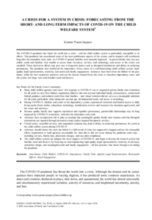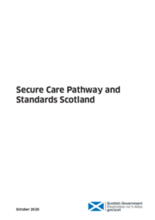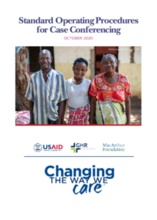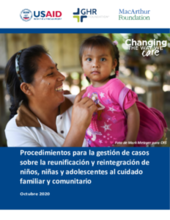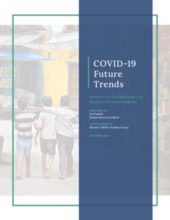Demographic Data:
|
Sources: World Bank, UNICEF, UNDP HDR 2015, DHS 2013/2014 |
Displaying 3371 - 3380 of 14348
"A recent review by the Nuffield Family Justice Observatory highlighted a lack of preparation and ongoing support for special guardians, who are often asked to care for children with complex emotional and behavioural problems in challenging circumstances," writes Louise Sims - kinship care and fostering consultant at CoramBAAF - in this article from the Guardian.
The objectives of this study were to describe the mental health status and the change in perceived strain among caregivers of children with special needs in India during the COVID-19 outbreak.
Join ODI and World Vision for a webinar exploring critical connections between the climate change and violence against children agendas.
This article calls on attorneys in the U.S. to learn from the fallout of the pandemic, retain the best responsive practices, and use the lessons learned from this crisis to transform dependency cases, and the child welfare system writ large, into what families need and deserve.
The pathway and standards set out what all children in or on the edges of secure care in Scotland should expect across the continuum of intensive supports and services.
The Alliance for Child Protection in Humanitarian Action (the Alliance) is organizing the 2020 Annual Meeting on Child Protection in Humanitarian Action over a virtual platform from the 5th to 16th of October 2020.
The purpose of this Standard Operating Procedure (SOP) is to provide a standard and consistent approach to case conferencing as part of a comprehensive case management approach utilized during decision-making processes for children. The SOPs should be utilized by institutions (e.g. Charitable Children’s Institutions, or CCIs) and organizations as well as other actors engaged in decision-making around children’s care and protection.
Los Procedimientos de Manejo de Casos para la Reunificación y Reintegración de los Niños, Niñas y Adolescentes al cuidado Familiar y Comunitaria se desarrollaron a través de talleres participativos en conjunto con la Secretaría de Bienestar Social (SBS), la Procuraduría de la Niñez y la Adolescencia (PNA) de la Procuraduría General de la Nación (PGN), El Organismo Judicial (OJ), El Consejo Nacional de Adopciones (CNA), la Asociación de Hogares Cristianos de Guatemala (ASOCRIGUA) y Hogar Aldeas de Esperanza. Se basó en el trabajo de Changing the Way We Care de Kenia en la Guía para trabajadores sociales: Manejo de casos para la reintegración de niños y niñas en cuidado familiar o comunitaria, adaptada al contexto guatemalteco.
In attempts to delineate the future impacts on today's children, this paper analyses the COVID-19 crisis as a dynamic phenomenon that shapes children's lives well into adulthood, with age and gender considered key influencing factors. It examines the impacts from previous crises and the available data to build prudent assumptions about the present situation and outlines four scenarios which provide opportunities to identify potential levers for positive change.
Desde os primeiros anos de independência nacional, em 1975, o objectivo central da política educativa de Moçambique tem sido o de assegurar que todas as crianças em idade escolar tenham acesso à escola e nela permaneçam até concluírem a educação b

